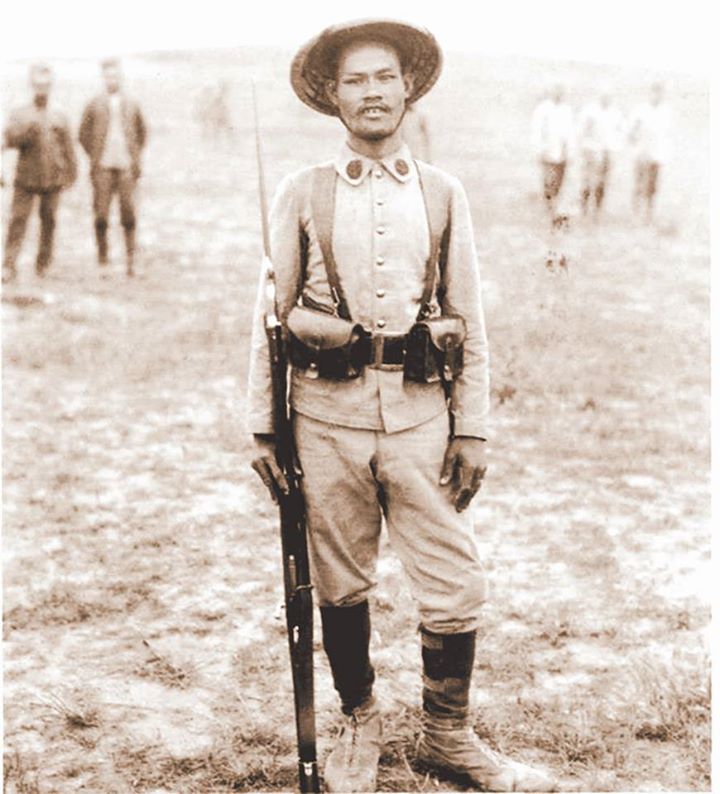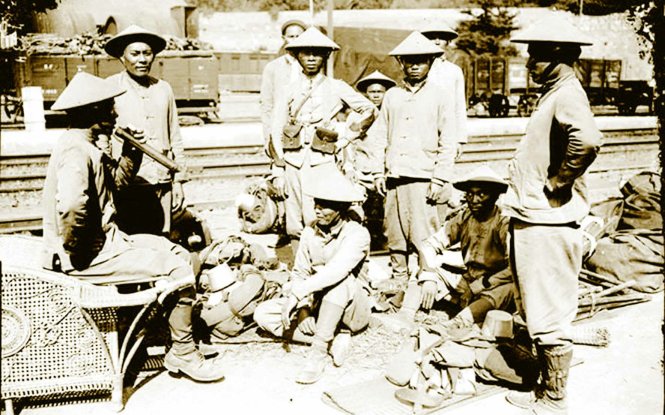Four commemorative plaques were put up in France on Sunday as a way to mark the footprints of many Vietnamese people who moved to metropolitan France to work or help the country fight during the First World War.
The plaques follow efforts of a group of historians in France’s department of Hautes-Pyrénées, headed by Paul Bouygard, who together found the presence of Vietnamese people in the area’s southern portion contiguous to Spain in the First World War, which played out from 1914 to 1918.
Each plaque tells its own story.
The first one explains what the name Annam [Peaceful South] means by saying that it is modern central Vietnam and fell under the protectorate of the French in 1887 as they were entering the lucrative market in China and appropriating arable land here.
As of 1916, around 50,000 people, chiefly Annamese and residents in modern northern Vietnam, migrated to France, many of whom worked in the local arms industry.
The people moved mainly out of necessity or due to coercion by the French or famine in northern Vietnam, the plaque says.
The newcomers were referred to as Annamese in general as they had boarded a ship docking at Tourane, an old name used in the French colonial rule for present-day Vietnam’s central metropolis of Da Nang.
The second plaque makes it clear why many Vietnamese came to Louron, the Hautes-Pyrénées department’s valley amidst the Pyrénées mountain range.
France at the time brought the foreigners to its weapon factories as its young citizens were being conscripted into the army.
Around 140 of the Vietnamese who were laboring in gunpowder manufacturing facilities were then transferred to a hydroelectric power project in the Louron valley because they had poor health and joined an anti-racism protest in February 1918.
 |
| A Vietnamese member from the French Marines is seen in 1916 in Ypres, a Belgian municipality serving as a theater for major battles of France and the U.K. against Germany in World War I. |
The workers built a giant concrete water pipe up to seven kilometers and faced numerous attendant problems.
Nineteen of them died on August 15 and 30, 1918 from Spanish flu, a pandemic that took the lives of around 280,000 people in France and about 30 million worldwide.
In the third commemorative plaque, Vietnamese people migrating to mainland France were described as inhabiting the mountains and relying on agriculture, with them even using water buffaloes – farming animals commonly found across their fatherland – in the unavailability of machines in their area.
They could be divided into groups distinguished by cultivation practices that matched different regional weather patterns in France.
They usually grew fruit trees, potatoes and rice, and the last crop could also be used as feed for sheep and cows.
In the Pyrénées, where snow falls, the Vietnamese found a new farming technique to cope with the harsh local weather conditions so different from those in their homeland.
The last plaque seems to have little bearing on the First World War Vietnamese migrants, as the historians focused on hydroelectric projects in the Hautes-Pyrénées department.
In 1917, it says, a hydroelectric dam came into being, generating power for a gunpowder factory in the department’s Lannemezan, where ammunition and explosive materials for the war were produced.
Like us on Facebook or follow us on Twitter to get the latest news about Vietnam!



















































